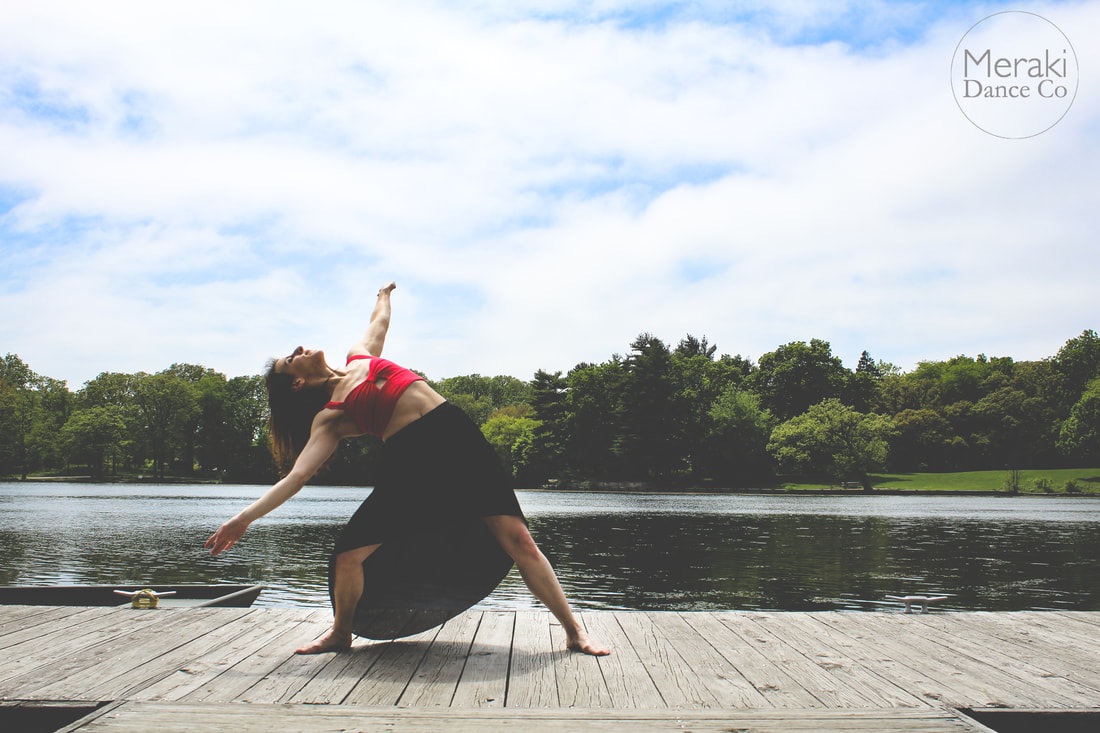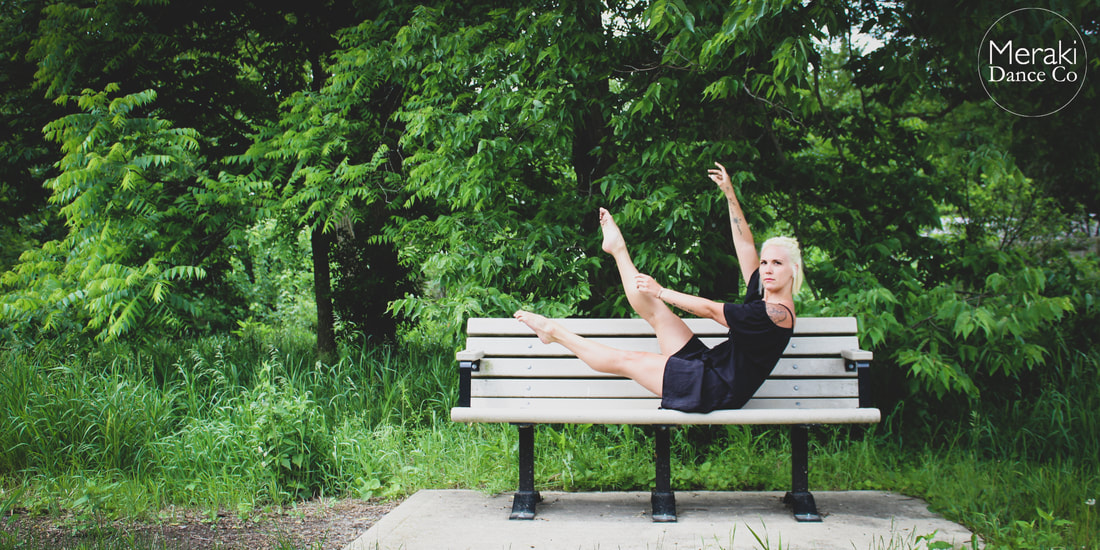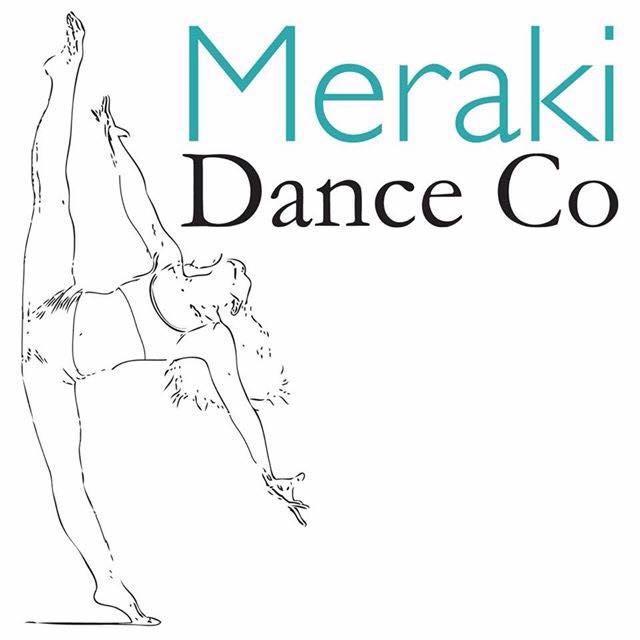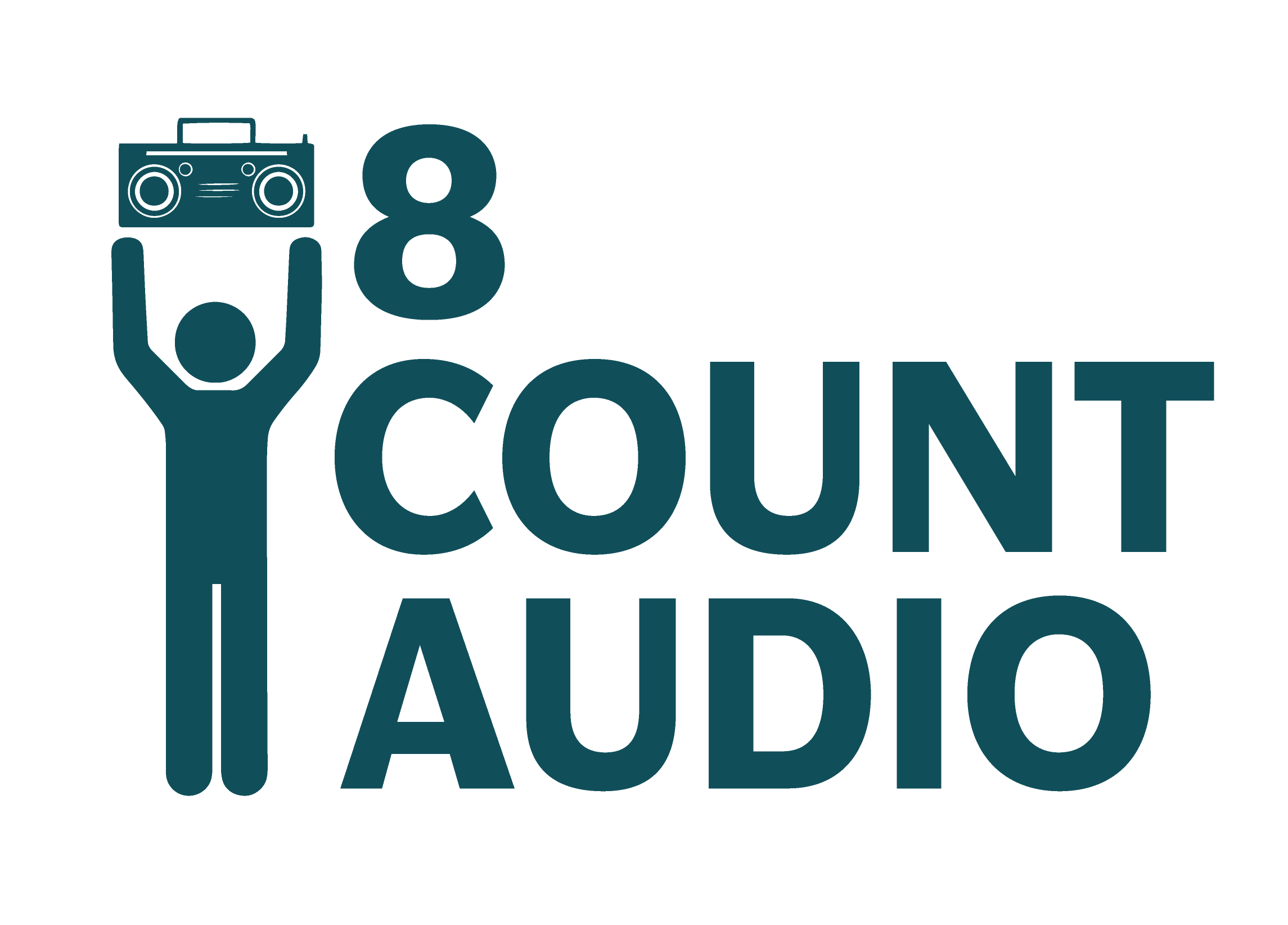Finding A Way Back Home: The Launch of Meraki Dance Company
Here’s how a lifelong dancer blazed a trail to bring dance performance back into her life
by Norm Ramil / 8ca music person & dance fan
Many dancers have their art form woven into their souls. It sticks around no matter what twists and turns life throws at them. Kristen Baron decided to do something about that in 2015 when she founded Meraki Dance Company. I had the awesome opportunity to sit down with the championship-winning dance team coach about her personal dance story and how it blossomed into an outlet for other professional dancers.
Meraki shares their artistic expression with audiences on July 28 and 29 at Madison Street Theatre in Oak Park. I saw last year’s wonderful show and it’s highly recommended! Find out more about Meraki and get tickets for this year’s show, “Stillness In The Chaos,” at merakidancecompany.com.
NR: How did you get started dancing?
KB: Both my parents were college athletes and put all of us into sports. My mom pulled out the park district catalog with a picture of a girl in pointe shoes, and soon I was dancing almost every night of the week.
NR: I know you were on dance team in high school, but what was your formal training like?
KB: As a young child, I danced at Dance Avenue in Orland Park, IL. As I started to train more seriously, I moved to Studio B in Palos. The owner was a prima ballerina–she really knew her stuff. She auditioned girls and guys to get into her studio, and I made it in about 7th grade. I danced with her all the way through. I was also a scholarship dancer at Joel Hall, and I also danced at [Lou] Conte.
NR: Besides all of that training, how did you get interested in choreography?
KB: I went to a Joel Hall dance convention where I choreographed a lyrical duet when we were freshmen in high school and won the best choreographer award. I also choreographed when I was on orchesis at Lockport.
NR: And you were on a state-winning Lockport dance team in 2000 as a sophomore. Did you have to make a choice about dance team versus orchesis versus studio work?
KB: I didn’t return after that championship season. I knew if I wanted to get a degree in dance, I needed to buckle down…like immense ballet training. So I did orchesis as a fun outlet and it really helped me grow as a choreographer. Meanwhile, I trained heavily in the areas of Ballet and Contemporary styles.

NR: Then on to college…
KB: I auditioned to get into University of Iowa’s dance program and was there for a year, but I found out it wasn’t for me because the program was so big. I didn’t get the one-on-one, community feel that I was used to from orchesis and ballet training. I asked around and everyone said, “Go to NIU.” And I will tell you that their program was tough! The pupil-to-instructor ratio is much smaller and we trained in Ballet and Horton Modern.
NR: So you’re under more of a microscope.
KB: Everything. I mean, you get to the ballet barre and they’re touching your stomach saying, “I can see what you ate for breakfast this morning.” You live and breathe NIU dance all day, all night. I did that and graduated with a degree in dance performance.
NR: When was the moment when you were like, “I’m going to be a professional dancer when I grow up?”
KB: I really didn’t [have a single moment]. It was just, “Who am I as a person?” I would think, “All I know about myself is, I’m a dancer. I’ve always been a dancer. Even if I’m a nurse or doctor or something one day, I’ll need to be dancing every day. So if I need to be dancing every day, let’s just go this route and figure it out later.” Luckily, it worked out for me.
NR: So after earning your dance degree, did you dive right into professional dance?
KB: I actually made a really poor decision, thinking, “I need to make money because that’s what your supposed to do post-college.” I am a huge nutrition-fitness addict…
NR: Yeah, I’ve noticed that on your Instagram!
KB: I really believe in living a healthy lifestyle. It came naturally for me to help others find that path. I worked in nutrition coaching and personal training for two years, and got super sick with meningitis. That was my turning point for my career. I knew I had to do something that was not 100% physical all day long. I decided that I love fitness, I love dance, why not go the route of my orchesis director in high school? I finished my masters in physical education.

NR: Well back when you were in the corporate world was there a lot of feeling like you were an artist who couldn’t do what she really wanted to do?
KB: Yes. I’ll never go back to that feeling again. I had no time to dance. I realized I couldn’t give, give, give, without getting something back for myself. And that was a good life lesson, because ever since then, I’ve danced every week.
NR: Where did you do your weekly dancing?
KB: I danced professionally for a company called Rodriguez Dance Theatre. I met some of my very dearest dance friends there. I stayed with them for two years and then continued to set work on other companies in the Chicago-land area.
NR: Let’s talk about how you actually launched Meraki…
KB: I’m a very decisive human being. I didn’t tell anyone at first besides my friend, Rachyl, and we were both teaching at Plainfield North at the time. I told her, “I’m going to start a dance company.” She immediately gave me confidence. She was the perfect person to talk to at that moment because if I’d talked to a non-risk taker, I don’t know if I would’ve done it. I went home, took a bubble bath, came out rejuvenated, and said, “I’m gonna find a name right now.” I was looking for meanings in different languages about anything that had to do with “love for what you do.” In an hour I came across meraki, which is Greek. I put together a website in a few days and then contacted everyone I knew from dance.
NR: Was it difficult getting dancers on board?
KB: A lot of the dancers wanted an outlet here in the suburbs that wasn’t hip hop, and once they knew Meraki was contemporary, they came on over. It’s just come full circle because my pool of candidates for Meraki has increased because I’ve taught at dance studios since high school. You just reach out and invite them to audition. And then they say, “Oh, it’s not in the city, I don’t have to give up my day job?” We all work during the day and can’t drive down to the city to take a class at noon. So that’s how Meraki started. I didn’t come this far to have gotten a degree, then leave dance for two years, finally get it back in my life, and then realize that I can’t do it during the day because I have to work. So I said, “I’m going to make a company in the suburbs.” And that’s how Meraki started.

NR: So Meraki is an ideal outlet for dancers who want to keep their day jobs but still advance their craft.
KB: 100%. I just put together a Meraki trailer that I’m editing right now, and every time I watch it, I cry. I didn’t prompt them to say anything. They’re saying things like, “I’m a mom; I couldn’t do this anywhere else. I’m a dance teacher; all I do is give, give, give. I’m a businesswoman; I have to be at work.” And they’re like, “This is an outlet for me, every Sunday, and it’s just a tight-knit family.” That’s exactly the vibe I want.
NR: What’s the range of backgrounds among the Meraki dancers?
KB: We have many people with dance degrees. Some of us are in college to get a dance degree. I have businesswomen. A lot of dance studio teachers. And a lot of IHSA dance coaches, a cheer coach, dance judges. I have a clinical psychologist. We’re all different in our day jobs. Some of us are young and not as young.
NR: It’s also a great opportunity for high school dancers to come to the show and see their coaches on stage.
KB: That was one of my favorite moments, when the team came and surprised me. And they came to the late-night show, too! Not only do they get to see their coaches on stage, but they’re not watching their coach do 32 a la secondes. They’re witnessing their coach tell an actual story. That’s the coolest thing for a kid to see.
Coming up in part 2: what it takes to actually plan and put on a full production!


